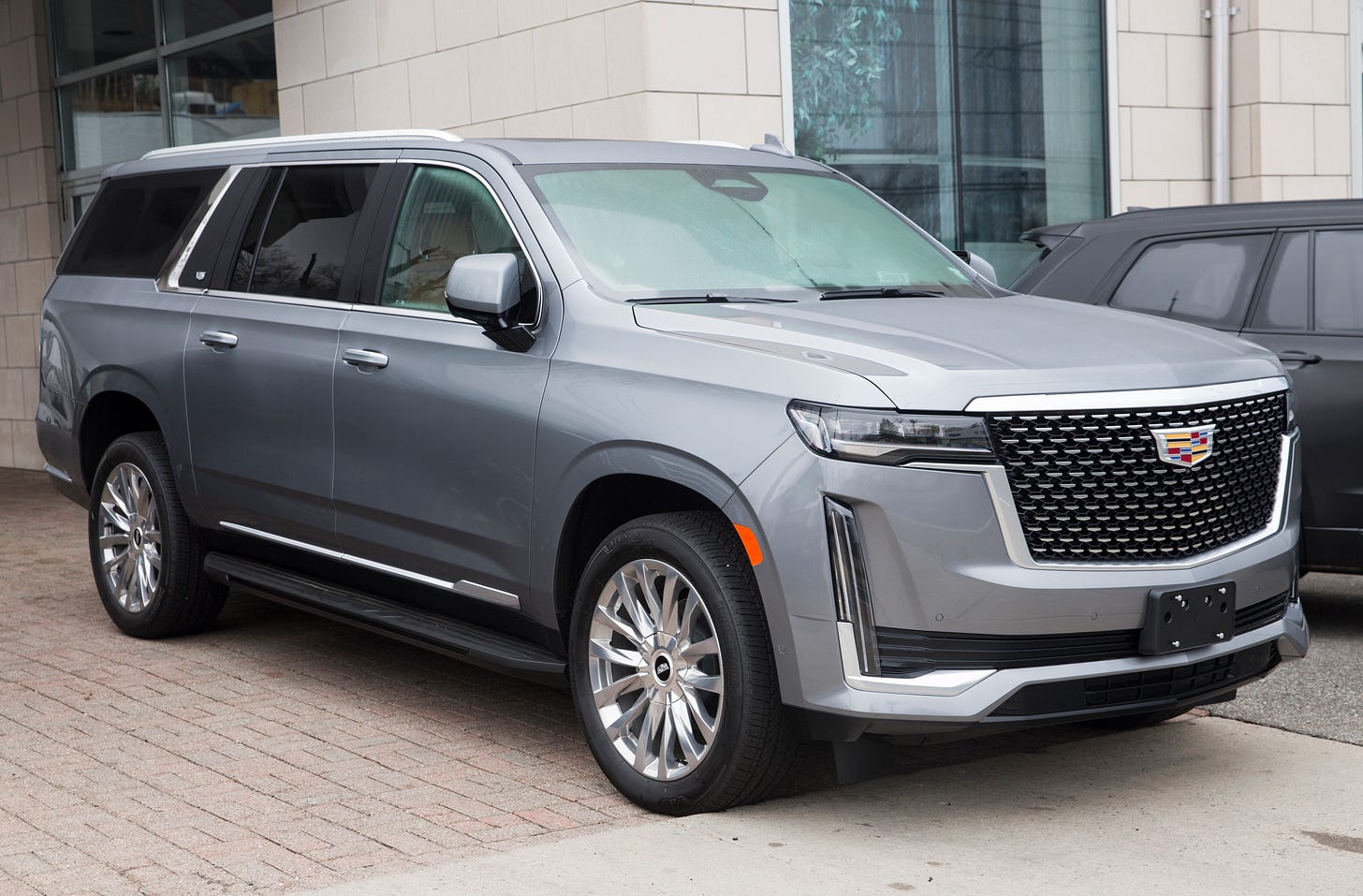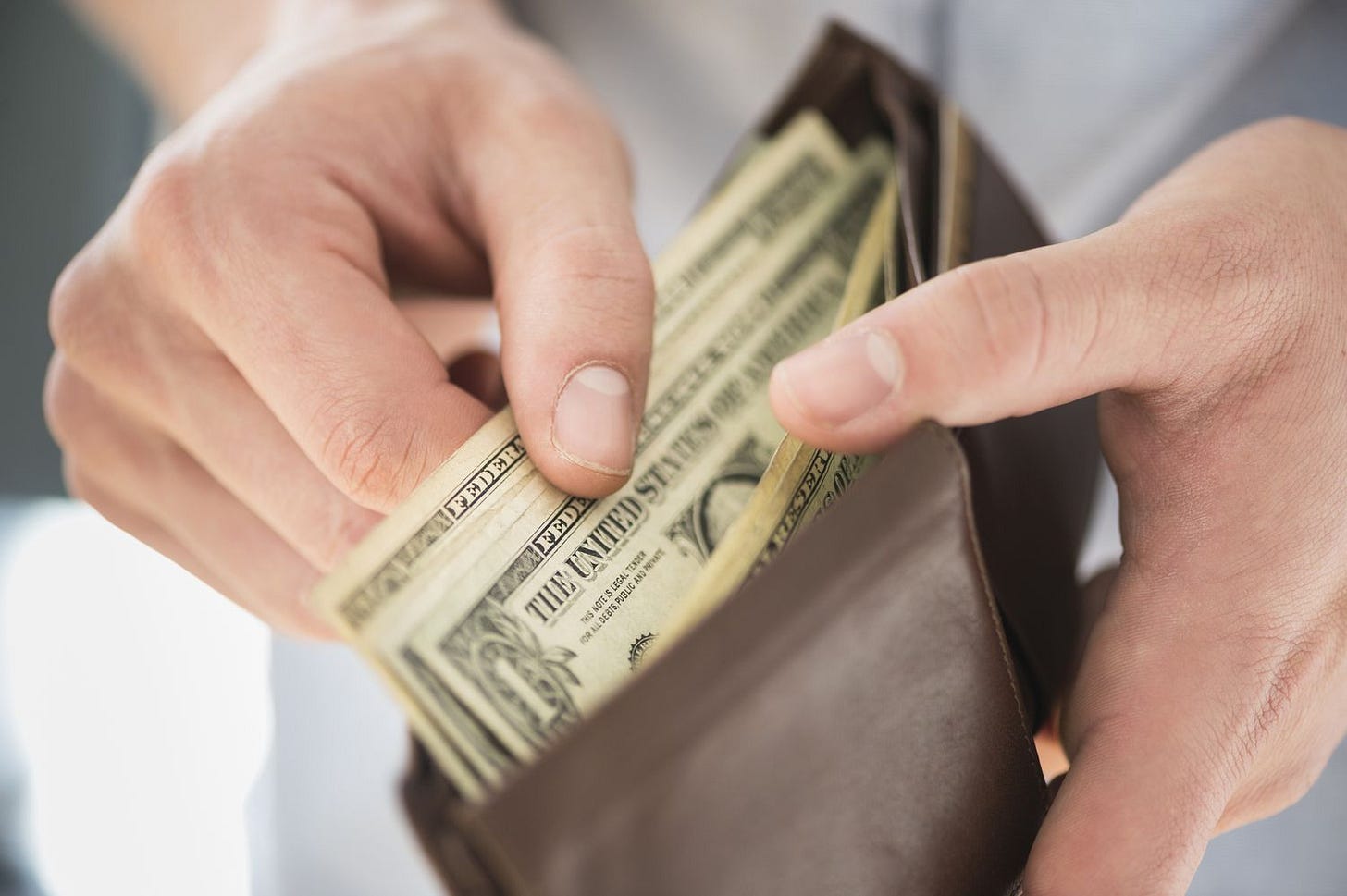Offense Wins Games. Defense Wins Championships.
Controlling Spending is the Key to Financial Success
When Ronald Read died in 2014, at the age of 92, he shocked his family and friends. Read, who had worked for 25 years as a gas station attendant and 17 years as a part-time janitor at J.C. Penney, had somehow amassed a fortune of over $8 million, it was discovered upon settling his estate1.
Read gave no hints that he was wealthy. He lived in a modest house—which he purchased in 1959 for $12,0002. He drove a modest car—a used Toyota Yaris. He wore modest clothes. He had modest hobbies. Everything about Read was modest.
His friends and family were baffled. How did he get the money? Did he win the lottery or receive an inheritance?
It turned out neither. Read built his fortune by consistently living beneath his means and investing what little of his income he could in shares of blue chip dividend-paying stocks. He then used the dividends from those stocks to buy more shares. He did this for years while his money compounded—into an $8 million fortune.
His modest lifestyle allowed him to free up money to invest. That was the secret sauce to his success. And his patience allowed him to keep the money invested and compounding for so long.
When Read died, he left $2 million to his children and donated $4.8 million to a local hospital and $1.2 million to a local library, the largest donations those institutions ever received3.
Now contrast Ronald Read with Michael Jackson, the pop sensation.
When Michael Jackson died in 2009, at the age of 50, he was awash in $400 million of debt4. This despite earning an estimated $1.1 billion over his career.
Where did the money go?
Much of it was spent on his sprawling Neverland Ranch, a 2,800 acre property which included a full theme park, movie theatre, and zoo. It required 160 people to maintain it at a cost of $10 million per year at one point5. In addition, Jackson was paying $30 million a year in interest on his debt, millions of dollars in legal fees, and $1.2 million a year to rent a mansion in Bel Air. Plus he had an extensive luxury car and jewelry collection, amongst other fine things.
Jackson lived way beyond his means. As a result, when he died, his financial situation was a disaster.
For years after his death his estate had to be cleaned up by the courts and miracles made so his debtors could be paid, with his assets sold off one-by-one.
Ronald Read and Michael Jackson’s stories teach an important lesson.
Spend less than you make and invest the difference for long-term growth, and you will be successful financially.
Spend more than you make and go into debt, and you will be a disaster financially.
This equation holds true regardless of how much money you make.
Most people think the key to financial success is making a lot of money. But your income has almost no bearing on how much wealth you build. Because for many people the more they make the more they spend.
Morgan Housel in The Psychology of Money said:
Wealth is just the accumulated leftovers after you spend what you take in. And since you can build wealth without a high income, but have no choice of building wealth without a high savings rate, it’s clear which one matters most.
In other words it’s defense (saving money) that matters more than offense (making money).
If you want to be successful financially you’ve got to control your spending. That’s how you free up savings. And it’s savings that build wealth.
Lifestyle
The trick to freeing up savings is to live beneath your means. If you make $200,000 a year, live like you make $150,000. If you make $100,000 a year, live like you make $75,000. If you make $50,000 a year, live like you make $40,000. And so on. Doing so automatically allows you to save a portion of your income and build wealth.
If you live at your means, there will be nothing left to save. All your money will be gone. And when you spend everything you make you create for yourself stress, anxiety, and uncertainty. It’s like playing Monopoly and not buying any properties and going around the board paying everyone else. It’s no fun, it’s called the rat race—and you don’t want to get stuck in it.
Small Purchases
Another way to free up savings is to cut out small purchases, particularly habitual ones that don’t give you value for your money. For instance, coffee. Many people purchase it daily at a coffee shop. Few people realize how much this costs over time. At $2 or $3 a coffee—times 365 days a year—it can cost up to $1,000 a year. Brew it at home yourself instead and you can save $700 or so a year. Seven-hundred dollars invested per year for 35 years is $130,000 in 35 years, at an 8 percent average rate of return compounded annually. Small expenses add up. In a big way.
Coffee is just an example. Maybe you really love getting your coffee at a coffee shop. That’s fine. Think of other small purchases you can cut that aren’t giving you good value for your hard-earned money. Lunches out. A gym membership that isn’t being used. A streaming service. Saving a couple hundred bucks a year can mean $100,000 more in retirement, or financial freedom sooner.
Big Purchases
Housing
One of the biggest money mistakes people make is purchasing a house that’s too expensive, resulting in higher mortgage payments that limit how much they can save. The goal is to keep your housing (or rent) costs down to 30 or 40 percent of your gross income, which frees up room to save after paying for life expenses. Anything higher than this makes saving very difficult, unless you minimize expenses. This might mean settling for a less expensive dwelling, but it means being on track financially, which increases happiness and reduces stress in your life.
Vehicles
Another common financial mistake people make is buying a vehicle that’s too expensive. The more expensive the vehicle the higher the insurance costs. Also, if financed, higher interest payments. And often, higher maintenance and gas costs. Add these up, and driving a nicer car can cost thousands of dollars more per year, easily up to $5,000. Over time, if invested, this money could become millions. Five-thousand dollars invested per year for 35 years becomes $930,000 in 35 years, at an 8 percent average rate of return. That’s how much an expensive vehicle costs over time.
Thomas J. Stanley and William D. Danko in the The Millionaire Next Door, said:
The consumption of very expensive automobiles has a dampening effect on the probability that one will ever accumulate significant wealth.
Most millionaires featured in the book, in fact, drove used vehicles. It was one of the tools they used to free up savings.
Money as Time
When you work you trade your time for money—the most precious commodity in the world. When you spend your money you’re really spending your time. Remember this whenever you make a purchase. Being careful with your spending is a form of self-respect for the limited amount of time you have on earth. Your money—if carefully invested—can buy you back time later in life in the form of financial freedom. Which is the greatest dividend it can pay.
A Dollar Saved is More Than a Dollar Earned
Consider when you save a dollar that it’s actually more than a dollar earned. That money took longer than meets the eye for you to make. Because of income tax and payroll deductions, a dollar saved is often closer to $2 earned. That $500 purchase isn’t worth $500, but often closer to $1,000 after factoring in income tax and other deductions off your pay. You have to make $1,000 before you’re left with $500 to make the purchase.
Become a Wiser Spender
Don’t just spend less money. Some things are worth spending money on. Those things are what you should spend your money on. Look at your expenses as investments, and allocate your money to the areas that provide the greatest return on investment in terms of joy. Often these are experiences, which provide lifelong memories. Spend your money. But spend it wisely.
Bottom Line
The key to financial success is shockingly simple: Live below your means. If you do that you will be able to save money. And if you save and invest your money you will build wealth.
It is really that simple.
https://en.wikipedia.org/wiki/Ronald_Read_(philanthropist)
https://en.wikipedia.org/wiki/Ronald_Read_(philanthropist)
https://en.wikipedia.org/wiki/Ronald_Read_(philanthropist)
https://www.newsweek.com/was-michael-jackson-debt-he-died-look-king-pops-finances-1349255
https://www.businessinsider.com/michael-jackson-net-worth-debt-spending-2019-8#jackson-wasnt-living-at-the-ranch-at-the-time-of-his-death-though-he-was-paying-100000-a-month-to-rent-this-mansion-in-los-angeles-bel-air-neighborhood-according-to-forbes-28











